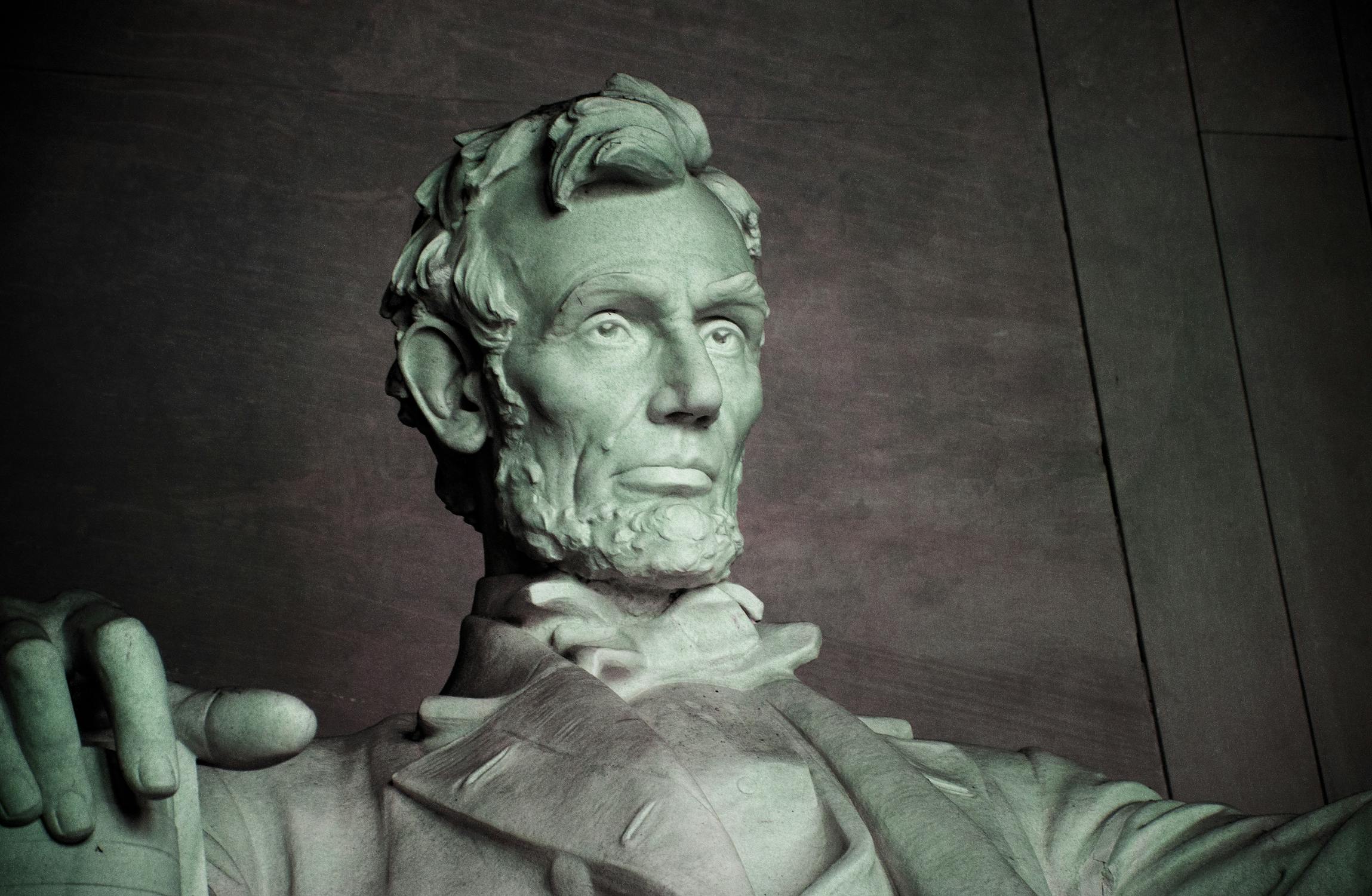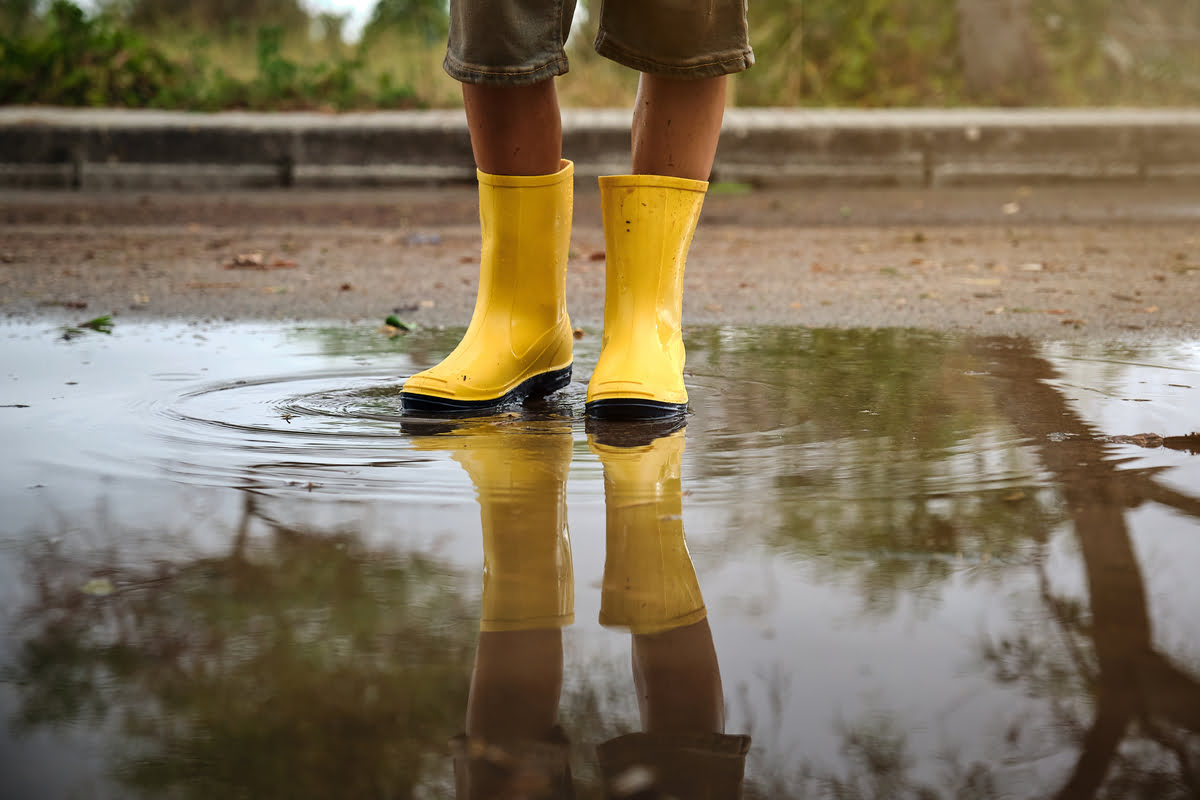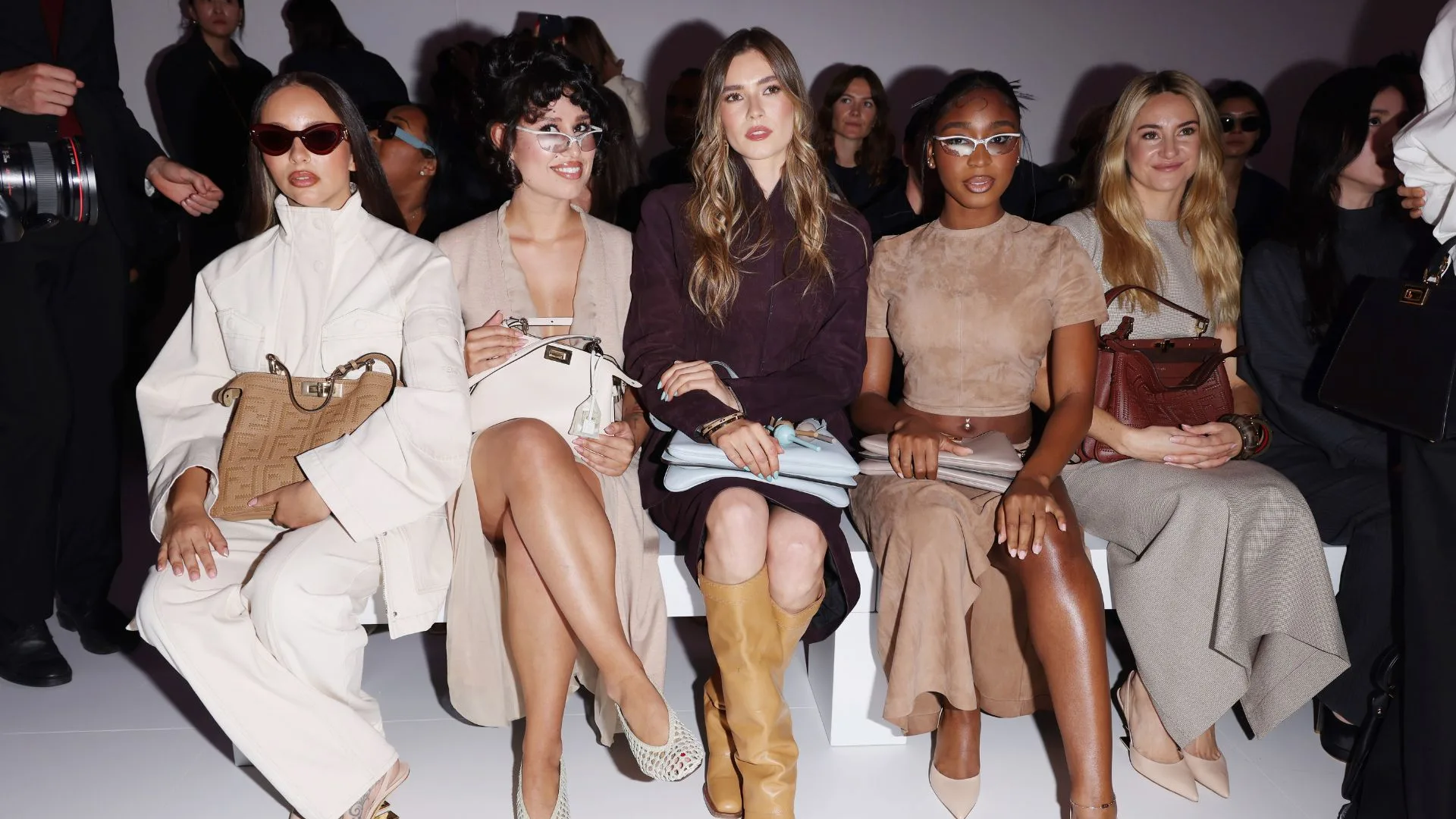By Bazhnibah
SANTA FE
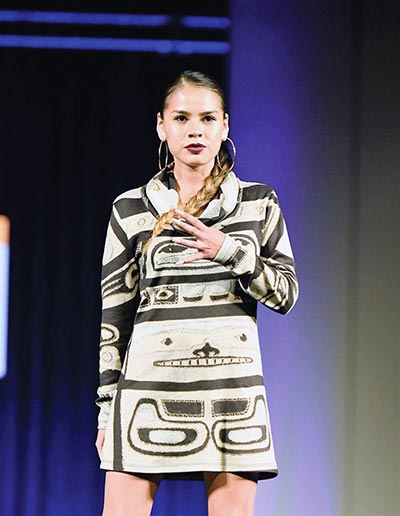
Special to the Times | Bazhnibah
Kewa Pueblo model Christy Bird in a Himikalas/Pamela Baker cowl neck cream and black Western Coastal designed dress with long sleeves.
What is fashion to most people in daily life is very different from what is considered innovative or high-end in the fashion world.
Sometimes fashion as in couture or high end, customed designed clothing do not appeal to many. But clothing with the right amount of design aesthetics, practicality and cost can appeal to many.
At the recent Southwestern Association for Indian Arts Indigenous Fashion Show, there were fashions for everyone!
This show is probably the largest Indigenous fashion show in the world. It is held every year as part of the Santa Fe Indian Market.
From elegant and unusual cuts and styles to the daily wear most are comfortable with, fashion designers came up with styles that catered to every lifestyle.
There were four designers showcased in this year’s 2021 event.
Orlando Dugi
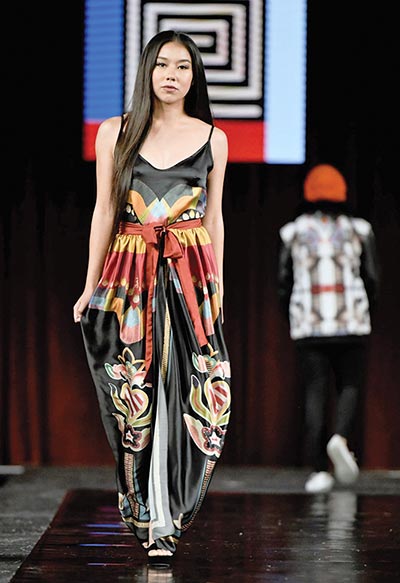
Special to the Times | Bazhnibah
Navajo model Sweetheart Malaysia in a Jamie Okuma dress with spaghetti straps, a front slit, and an orange belt tie at the Indigenous Fashion Show.
First, Orlando Dugi had shimmering, barely-covered-there pieces.
Diagonal-cut fabrics and the beading and embroidery were just breathtaking.
Many gasped as an indigenous model came out onto the runway with a fuchsia pink skirt and a silver and pink beaded and see-through tule top that only a few would dare to wear. The fuchsia color comes from an aniline dye and also called magenta.
Dugi dyes most of his textiles to create one-of-a-kind fabrics to make dresses, skirts, and tops.
Orlando Dugi is not from a city a fashion designer may usually be associated with. Rather he is Diné from the desert-like western part of the Navajo Reservation called Grey Mountain, Arizona.
On his website, he is labeled as “Orlando Dugi is a Santa Fe based fashion house, designing timeless yet modern elegance for the chic woman.
“Luxurious fabrics, textures, embellishments, and extravagance, inspired by and handcrafted from tradition rooted in Diné heritage,” his website said. “Orlando Dugi meticulously threads the past with the present.”
What a brilliant description of a Diné designer who learned how to sew from his grandmother at six years old.
Dugi takes his traditional upbringing and applies it to his fashions. One of his long dresses, called the Leona Dress, is a hand-beaded and embroidered silk/metal organza and silk taffeta dress.
He states on his website, “Diné are taught to offer white corn and corn pollen to the holy people. This dress is an interpretation of the beauty and significance of white corn and it’s delicate pollen.”
To blend his culture with fashion outcomes and goals is remarkable.
Check out his website at www.orlandodugi.com, Facebook, and Instagram @orlandodugi.
Western coast, vibrancy, one of a kind
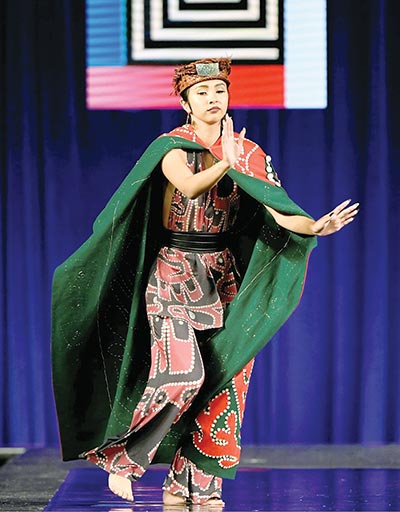
Special to the Times | Bazhnibah
A model in a Himikalas/Pamela Baker design cape and halter neck jumpsuit and a cedar hat at the Santa Fe Indian Market Indigenous Fashion Show last week.
The second Indigenous designer to show her fashions was Himikalas/Pamela Baker, First Nations of Canada and Tlingit/Haida/Squamish from western Canada.
Her fashions highlight Canadian west coast designs. A graduate from the Otis College of Art and Design with a degree in fashion design, Baker focuses her efforts on designing a future that would honor her ancestors and “continue to create and support” her community.
Many of her pieces were reds, creams, and blacks with west coastal designs and cutouts.
Lauren Good Day was the third Indigenous designer to show her fabulous line of fashions.
Her fashions are vibrant and pastel-colored, bright ribbons, and butterfly beadwork designs.
Her summer Wearable Art Collection was most exciting! She also showed her sporty colorful leggings, tops, and jackets with beadwork butterfly designs.
One, Butterfly Frill Dress, was a striking pink, short polyester dress with geometric butterfly beadwork pattern and a ribbon print with cowrie shell bottom.
It was loose and seemed fun to wear in the spring and summers. Look for her pieces on www.laurengooday.com as she has scarfs, flat bags, and Ledger drawings too!
Lastly, the fourth designer was Jamie Okuma, Luiseno, Wailaki, Okinawan and Shoshone-Bannock and an enrolled member of the La Jolla Band of Indians in Southern California.
Like other Indigenous fashion designers, Okuma handcrafts all her one-of-a-kind fashions and also designs ready-to-wear clothing.
Okuma has shown her fashions in places like Australia, Germany, France and in museums around the country.
Okuma’s work includes beaded artwork which she terms “accessorizable art.” Her fashion line has flowing dresses with eagle feathers, ribbons, elk teeth, butterflies, and dentalium designs.
She designs her own fabrics as well. Check out www.jokuma.com to view her shop and gallery of work.
All in all, the SWAIA Indigenous Fashion Show this year was a great showing. I will look toward next year’s 2022 SWAIA SFIM event.
Bazhnibah is Ruth Kawano, a retired registered nurse, a former U.S. Public Health Service captain, a former U.S. Air Force captain, and a former flight nurse. She is a writer-photographer.
2021 SWAIA Santa Fe Indian Market’s Indigenous Fashion Show


